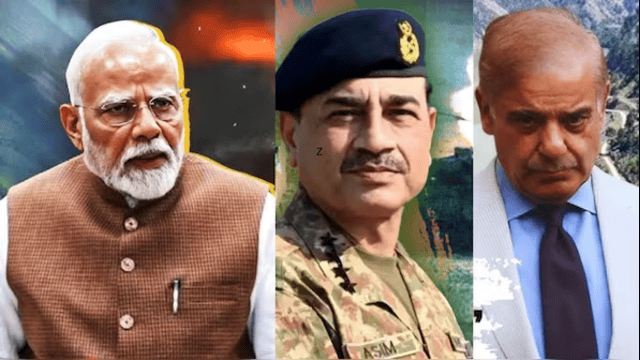
The talks between the Directors General of Military Operations (DGMO) of India and Pakistan, which were scheduled for 12 pm, had been delayed and took place in the evening. The two sides reportedly only discussed the ceasefire and not the Indus Waters Treaty
A fragile ceasefire now holds between India and Pakistan after weeks of escalating violence across the Line of Control (LoC). While the guns have largely fallen silent, tensions remain high. Both countries agreed to stop all military actions across land, air, and sea starting May 10. But within hours, Pakistan reportedly violated the truce.
Indian forces remain on high alert, especially across western border states. Although Monday saw the first peaceful night in weeks, the Army confirmed that the situation is being monitored round-the-clock. The quiet follows a brutal month marked by terror strikes and retaliatory military operations.
Operation Sindoor: India’s Retaliation Was Swift and Strong
Tensions flared in April when Pakistan-backed terrorists killed 26 civilians in Jammu and Kashmir’s Pahalgam. In response, India launched Operation Sindoor, targeting terror infrastructure across nine locations in Pakistan and Pakistan-occupied Kashmir.
The Indian Army claimed over 100 militants were neutralized, and key military facilities were destroyed. Pakistan retaliated with drone and missile strikes. India’s counter-response was swift and severe, forcing Pakistan’s military to request de-escalation.
The ceasefire that followed was seen as a tactical pause rather than a peace breakthrough. Indian officials warned that any future ceasefire violations would be met with even stronger action.
India’s Anti-Terror Doctrine: No Room for Nuclear Blackmail
In a powerful address, Prime Minister Narendra Modi outlined India’s updated anti-terror policy. He made it clear that India will not tolerate nuclear threats or terror blackmail.
“Every time, we’ve defeated Pakistan on the battlefield. Operation Sindoor has proven our strength in New Age warfare,” Modi declared.
The prime minister praised indigenous weapons systems used in the operation, saying they had enhanced India’s credibility in modern combat. “Made in India” defense equipment, he added, stood the test of high-intensity battle.
Ceasefire Holds, But Trust Deficit Remains
Despite the truce, trust between the two nuclear-armed neighbors is virtually absent. Both countries have claimed victory, though with differing narratives. While India presented satellite images and operational data, Pakistan relied on social media claims.
Indian and Pakistani military hotlines have been reactivated to avoid accidental escalations. Still, analysts warn that peace is far from assured. The international community is watching the situation closely, concerned it could spiral into a broader conflict.
Indian diplomats stressed that the ceasefire’s durability hinges on Pakistan’s conduct going forward. So far, India has exercised restraint but maintains a firm stance.
Terrorist Funeral Exposes Pakistan’s False Narrative
Pakistan faced global embarrassment when it attempted to humanize a designated terrorist. Hafiz Abdul Rauf, who led the funeral prayers for militants killed in Operation Sindoor, was described by Pakistan’s military spokesperson as a “common man.”
However, Rauf's identity number and personal details, publicly shared by Pakistani officials, matched those in the U.S. sanctions list. The revelation exposed Pakistan’s duplicity and its continued links to banned terror outfits like Lashkar-e-Taiba.
‘Not an Era of Terrorism,’ PM Modi Warns
Ending his speech with a firm message, PM Modi added a new dimension to his earlier global appeal for peace. “This is not the era of war—but this is also not the era of terrorism,” he said.
He warned Pakistan that its continued support for terror will only lead to its own downfall. “If Pakistan wants to survive, it must dismantle its terror infrastructure. There is no other path to peace,” the prime minister concluded.
The Road Ahead
Though calm prevails for now, India’s leadership remains cautious. The ceasefire is a welcome pause, but not a peace agreement. The next moves will depend entirely on Pakistan’s behavior.
India has made its stance clear: peace is possible, but only with zero tolerance for terror.















